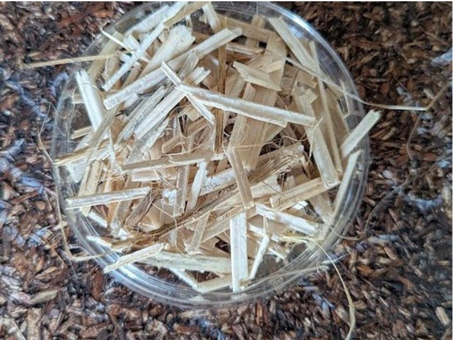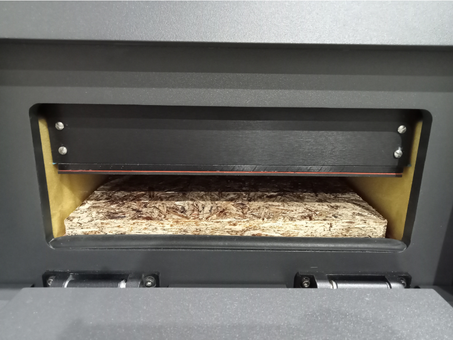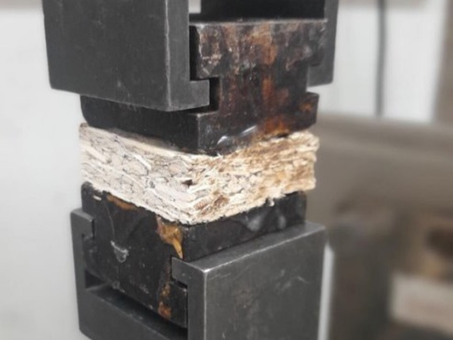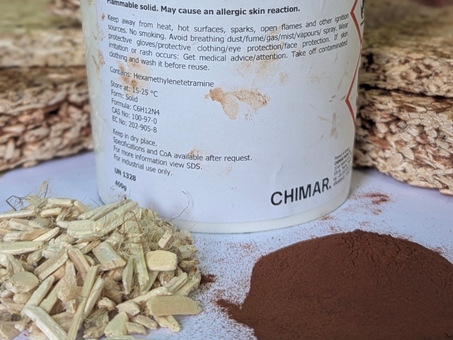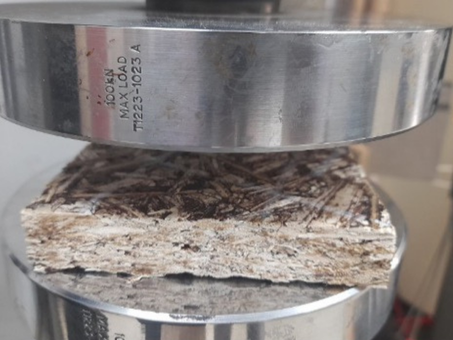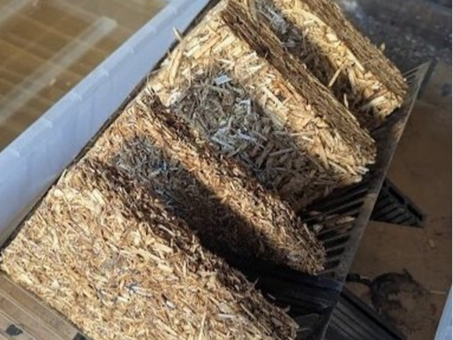Solution 4
Biopanels
Partners
involved




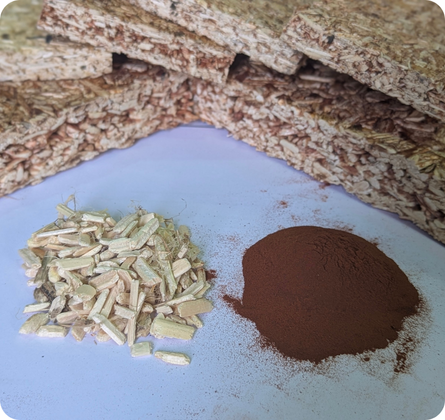
What is sustainable bio-based panels
Sustainable bio-based panels are a new type of construction material made from renewable, natural resources like plants, wood, agricultural waste, and fungi. They are used for insulation, structural walls, flooring, and cladding, among other applications. These panels are a sustainable alternative to traditional materials due to their low carbon footprint, reduced energy consumption during production, and biodegradability at the end of their lifecycle. They also contribute to a healthier indoor environment by releasing fewer harmful chemicals.
We’ve developed an eco-friendly insulation panel made entirely from hemp and natural tannin-based adhesives – a smart, sustainable alternative to conventional materials. Hemp offers excellent thermal performance and breathability, while our plant-based adhesive provides strong bonding without the harmful chemicals found in traditional insulation. To ensure durability in real-world conditions, each panel is finished with a protective render made from blended cement and geopolymers, making it suitable for both interior and exterior applications. It’s a clean, responsible choice for building better.
The primary goals of this project are to develop a new generation of building panels that are:
- Sustainable: Made from local, low-cost biomass waste and bio-adhesives to reduce reliance on fossil-based polymers.
- High-Performance: Possessing good thermal and mechanical properties comparable to or better than existing commercial products.
- Safe: Demonstrating low VOC emissions, high fire resistance, and resistance to fungi.
- Environmentally Friendly: Aiming to significantly reduce embodied energy and CO2 emissions, with an expected reduction of over 50% compared to fossil-based alternatives.
- Economically Viable: Having a competitive advantage over conventional materials on the market.
We have made significant progress in developing and testing the bio-based panels:
- Materials & Production: We successfully produced bio-based panels at a pilot scale using hemp fibers and a tannin/hexa-based adhesive. These panels consist of 10% resin relative to the fiber mass.
- Technical Performance: The panels demonstrate strong performance in several key areas, including:
– Mechanical Properties: Successful testing of shear, compression, tensile, and bending strength.
– Safety: Good resistance to fungi, positive fire performance, and low VOC emissions.
– Thermal Conductivity: The thermal conductivity of our hemp-based insulation panel is below 0,055 W/m·K, significantly outperforming the 0.1 W/m·K limit set by the Spanish Technical Building Code (CTE). This means our solution not only meets but exceeds the minimum standard for energy efficiency, also under our KPI defined in the project proposal which was 0,06 W/m·K.
– Renders: The developed mortars for the outer skin have properties that are equal to or superior to the commercial reference mortar.
- Sustainability & Economy:
– Embodied Energy & Emissions: Initial calculations show a reduction in embodied energy and similar CO2 equivalent emissions to commercial particleboard wood, indicating a significant improvement over fossil-derived products.
– CO2 Sink: We confirmed that some of these bio-based materials can act as a CO2 sink, further enhancing their environmental benefits. We expect to see a 70% reduction in embodied energy and a 50% reduction in CO2 emissions compared to petroleum-based materials.
While our achievements are promising, there are several areas that require further development and refinement in the upcoming period (WP3):
- Industrial-Scale Sustainability Assessment: We will conduct a full Life Cycle Assessment (LCA) at an industrial scale to accurately measure embodied energy and CO2 emissions, which we expect to have stronger competitive advantages than the values obtained with lab scale data. We are also pending measurement of environmental and economic indicators for the mortar renders.
- Material Property Improvement:
– Moisture Resistance: The most critical issue to address is the high short-term water absorption. We will focus on developing formulation adjustments or treatments to reduce this absorption, ensuring the panels’ durability and long-term performance, even though they will be sealed within a sandwich façade system.
- Sandwich Panel Industrialization Delivery:
– Adhesion testing in progress: Ongoing tests are evaluating the bond strength between the recycled mortar layer and the hemp-based biopanel to ensure durability and material compatibility.
– Fixing system development: The design of the mechanical fixing system is underway, with physical testing scheduled to begin in the coming months.
